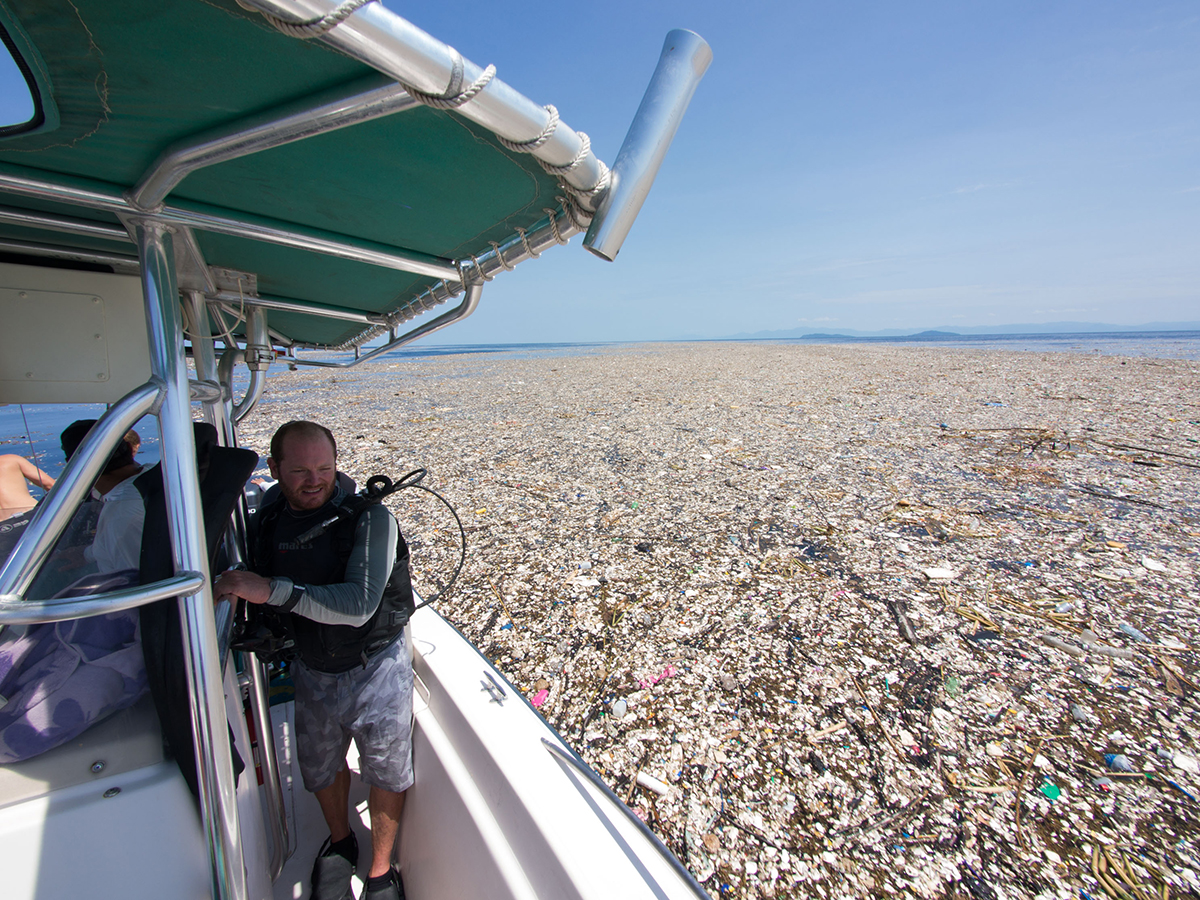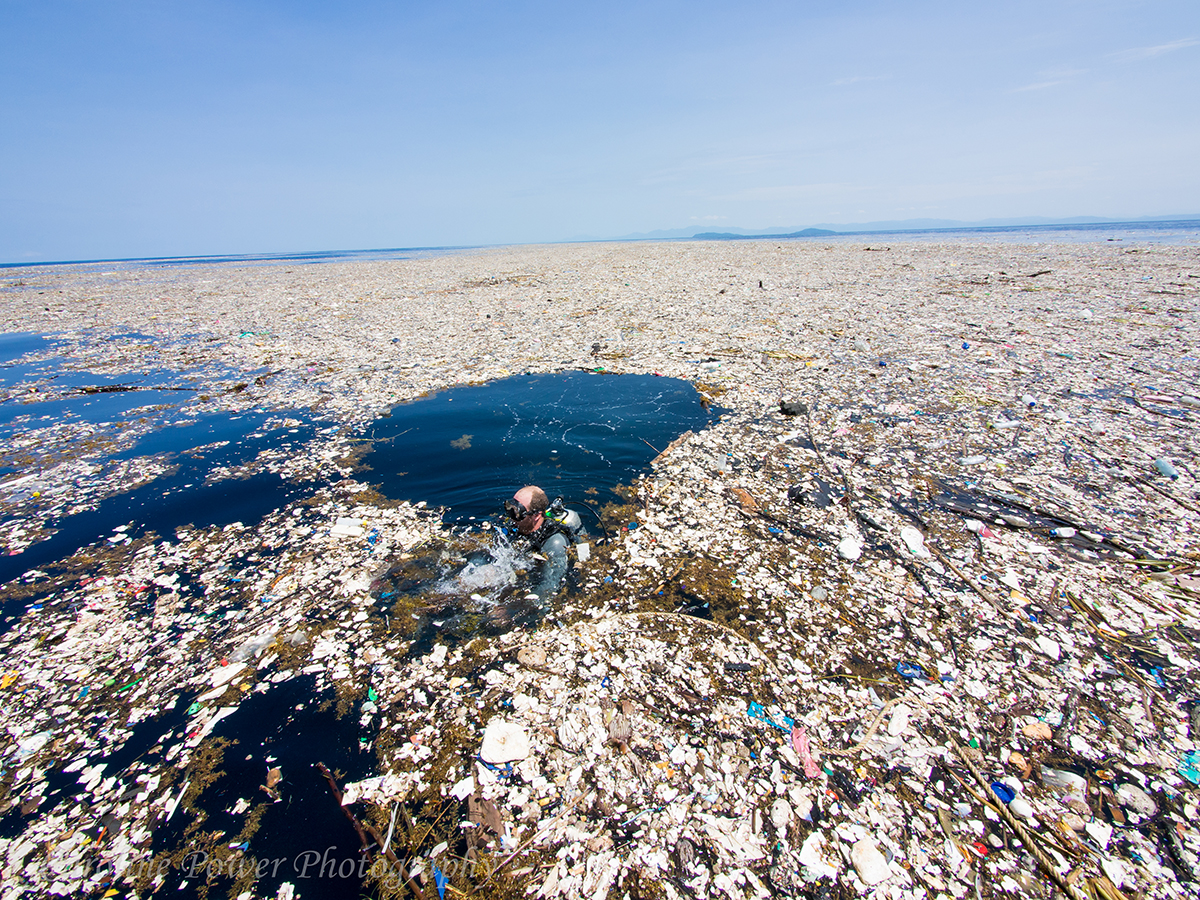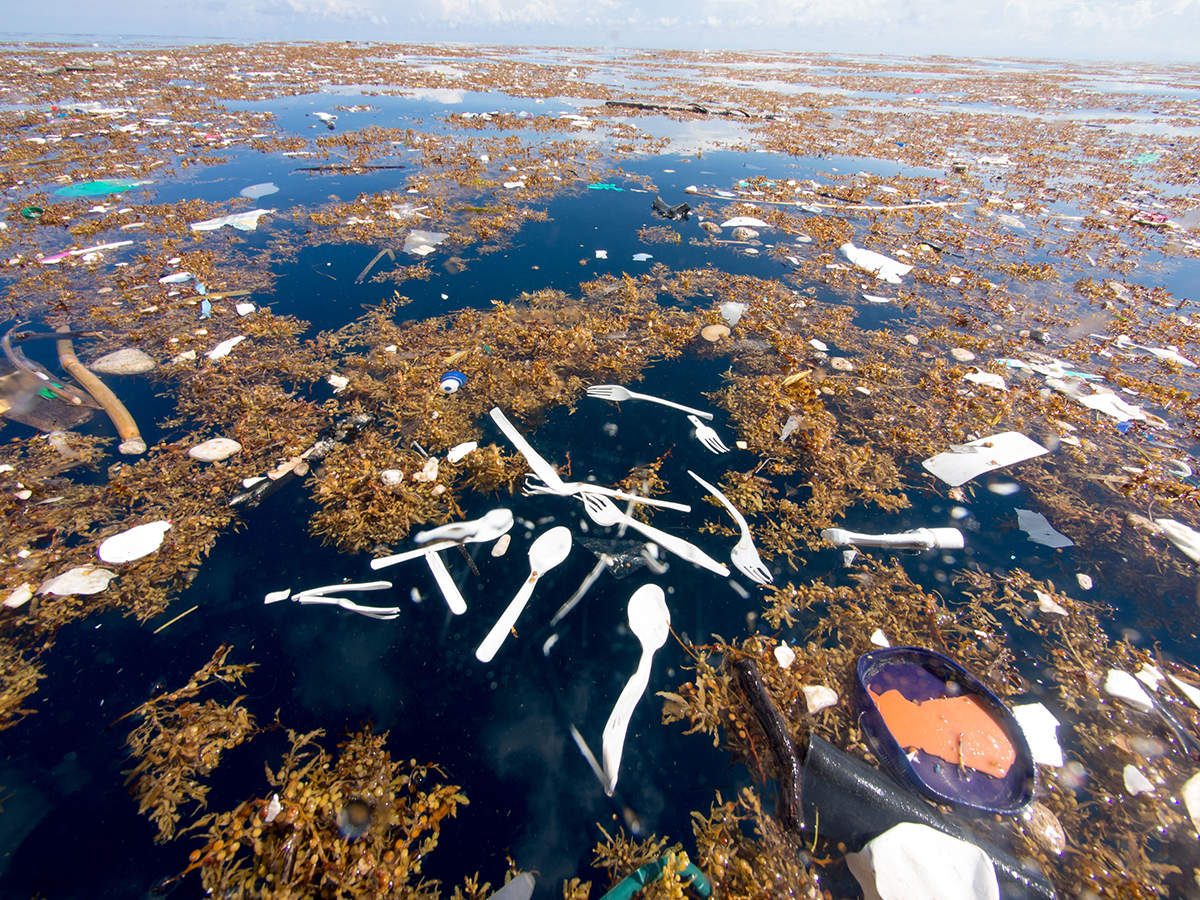
This sea of garbage floating off the coast of an island in Honduras is just the latest visual example of how plastic is polluting the world’s oceans.
Caroline Power, an underwater photographer and conservationist who lives on the Honduran island of Roatan, posted shocking images of the floating trash pile on Facebook. Stretching across miles of clear blue water, the garbage includes tons of common household items like plastic forks, bottles and trash bags.
According to Blue Planet Society, an environmental conservation energy, some of the trash may have come from Guatemala’s polluted Motagua River, which flows into the Caribbean sea.

With more than 8 million tons of plastic making its way into the ocean each year, this kind of pollution is a larger global issue with huge implications for both marine life and humans. And scientists estimate that if current trends continue, there will actually be more plastic in the oceans than fish by 2050.
The problem with plastic is that it’s practically indestructible. Once it enters the ocean, plastic debris eventually breaks down into tiny microparticles, which fish, birds and other animals like turtles mistake for food. That’s bad enough, but when we eat fish, the contaminants may get passed on to us.
Cleaning up messes like the one near Roatan is costly and takes lots of time, but one new technology could also help.

Founded by a 22-year old from the Netherlands, a nonprofit called The Ocean Cleanup has already raised more than $31 million to develop a solution for getting rid of half the plastic in the North Pacific Ocean in 5 years. Their plan is to use a series of giant floating pipes that will be anchored 600 meters deep and will collect the plastic near the surface of the water.
If the technology is successful, it could be successfully deployed to other areas across the globe.
Want to help? You can start by reducing the amount of single-use plastics you use each day. This includes plastic and styrofoam cups, straws, cutlery, and plastic bags. You can easily replace them with a reusable version. Caroline also suggests supporting Roatan Marine Park, the local NGO with numerous programs including anti-plastic and plastic alternative campaigns, recycling projects, and environmental education programs.




